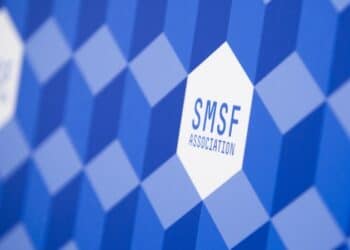Speaking to SMSF Adviser, Tactical Super director Deanne Firth said one of the areas where auditors perhaps haven’t been getting sufficient evidence in the past is unit trusts, particularly those with related parties involved.
“Where you’ve got a related unit trust, that’s where auditors really need to see the bank statements and some of the expenditure. That information isn’t available on a data feed so auditors need to see the actual evidence,” said Ms Firth.
While trustees will often supply the financial statements for the unit trust, Ms Firth said the auditor may actually need more than that where it’s a related unit trust.
Ms Firth said this is one area in particular where SMSF professionals and trustees may see auditors become more stringent with what evidence they request, particularly with the ATO and ASIC scrutinising what evidence auditors have obtained when undertaking SMSF audits.
In a recent online article, documentation provider SuperCentral said that SMSF trustees planning to use unit trusts as a way of investing in developments or making large purchases need to be careful they don’t fall foul of the rules.
SuperCentral said that the government regulations prohibit SMSF trustees from using their super to invest in their other businesses or investment schemes, their family’s business structures or other investments where what they are doing is supporting the investment because of the relationship rather than adopting an independent and objective investment assessment.
“Assets controlled by people, companies or trusts that are ‘associates’ of the member are in-house assets,” SuperCentral explained.
“The definition of ‘associate’ in the legislation is eye-wateringly complex and designed to throw the net as wide as possible to avoid the ability to side-step the rules. A super fund cannot invest more than 5 per cent of its total value in ‘in-house assets’.”
SuperCentral warned that a unit trust will be considered to be a related trust if the super fund gains control of the unit trust.
“The unit trust will be a related trust if the super fund controls the unit trust. The concept of ‘control’ is very strictly and broadly defined as well,” it explained.
If the super fund for example holds more than half of the units or has more than half the votes at unitholder meetings it will be said to control the unit trust.
Aquila Super partner Chris Levy has also previously cautioned trustees on some of the dangers of using these sorts of structures for property development or other investments.
Mr Levy said SMSF professionals and trustees need to ensure that investors are not caught by the related party rules of Part 8 ensuring that the SMSF’s investment will not be classified as an in-house asset.
The SMSF trustees will also need to ensure that all parts of the transactions within the trust are at arm’s length and that there is no danger of non-arm’s length income tax penalties being imposed, he added.
“[They also] need to ensure that the proposed investment satisfies the sole purpose test and the fund’s investment strategy,” he said.



Well said Bruno
My experience of approaching directors and secretaries of unlisted companies is as you said and worse
One director and CEO said he had never been asked for a market value by an investor and advised to use cost. Astounding.
A company secretary told me there were no accounts prepared for the company for six years. Company is run by a bunch of ‘mates’ apparently and no-one has asked for the accounts!!!
In both cases, the shares were not redeemable, as there was no buy-back facility.
I have suggested to the auditor a qualified audit report and ACR would be appropriate, and I hope that to be the case.
The lack of knowledge of the requirements is staggering
Equally important are the audit issues for SMSF investments in non-related unit trusts. There is still woeful ignorance amongst managers and promoters of unlisted companies & property trusts about the annual requirements of their SMSF investors. Most stick their head in the sand when asked for an annual market value. They don’t need to provide this for their non-super investors, and SMSF auditors have been lax in pushing for these in the past. The number of fund managers I have had to “educate” in the last 12 months on this topic is astounding. Most are totally oblivious, others don’t care.
The message for SMSF trustees is simple. SIS Reg 8.02B requires an annual market value. If the unlisted company or trust manager won’t assist you with supplying one, your options are to be reported to the ATO by the auditor for non-compliance, or redeem it and get the money back. Tell the investment manager that, it usually gets them off their complacency!